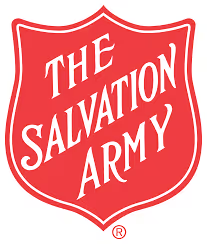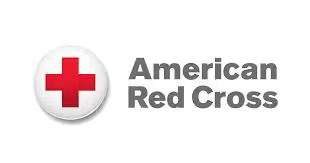






5-Star Valuation Services, Loved by Hundreds
The appraisal process involves a comprehensive evaluation of various types of property, including real estate, artwork, collectibles, and specialized equipment. A qualified, independent appraiser conducts a meticulous examination that captures the item's precise market value, considering factors such as condition, age, and current market trends.
The core purpose of this appraisal is to create a transparent, credible record that meets stringent IRS guidelines. Donors must obtain a detailed report that includes a comprehensive property description, precise valuation methodology, and the specific date of valuation. The appraiser's professional certification and signature validate the document's integrity and accuracy.
Precision is paramount in this process. Inaccurate or incomplete appraisals can trigger potential audits, penalties, or outright denial of tax deductions. By adhering to IRS requirements, donors can confidently document their charitable contributions while maintaining full compliance with tax regulations.
Ultimately, an IRS Form 8283 appraisal serves as a critical bridge between charitable giving and tax reporting, providing a rigorous, objective assessment that protects both the donor's interests and the integrity of the tax system.
What Makes IRS Form 8283 Unique?
IRS Form 8283 is a critical document for taxpayers seeking to claim deductions for non-cash charitable contributions exceeding $500. Understanding its unique characteristics is essential for both donors and appraisers to ensure compliance with IRS regulations and maximize potential tax benefits.
Distinctive Features of Form 8283
Dual-Purpose Reporting Tool
The form serves two primary functions:
- A reporting mechanism for taxpayers
- An informative document for the IRS
It requires comprehensive descriptions of donated items, including detailed fair market value assessments conducted by qualified appraisers. The IRS emphasizes accurate valuation to prevent inflated claims that could trigger audits or penalties.
Tiered Valuation Requirements
Form 8283 implements a nuanced approach to donation valuation:
- Contributions between $501 and $5,000: Donors can self-value items
- Contributions over $5,000: Mandatory professional appraisal required
This tiered system demonstrates the IRS's commitment to ensuring high-value donations are substantiated by professional evaluations.
Appraiser Accountability
The form mandates unique appraiser requirements:
- Mandatory appraiser signature
- Comprehensive qualification summary
- Direct accountability for valuation accuracy
These provisions enhance the credibility of the valuation process and provide the IRS with additional verification mechanisms.
Comprehensive Documentation
Form 8283 goes beyond basic reporting by requiring:
- Detailed photographic evidence
- Supporting receipts
- Extensive item descriptions
This multi-layered documentation approach ensures transparency and protects both taxpayers and the IRS's review process.
Key Takeaway
The intricate design of IRS Form 8283 underscores the importance of meticulous documentation and professional appraisal in non-cash charitable contributions. Donors must approach the process with precision and attention to detail to maximize their tax benefits while maintaining full compliance with IRS regulations.
Why Accurate Charitable Contribution Appraisals Matter
Accurate charitable contribution appraisals are critical for donors seeking to maximize tax benefits while maintaining full compliance with IRS regulations. When individuals or businesses donate valuable property like real estate, artwork, or collectibles, determining a precise fair market value becomes essential for proper reporting on IRS Form 8283.
Key Requirements for Charitable Contribution Appraisals
- Mandatory for contributions exceeding $5,000
- Requires a qualified appraisal by a certified professional
- Protects donors and the IRS from potential valuation fraud
Why Precision Matters
A well-executed appraisal serves multiple crucial purposes:
- Compliance Verification: Demonstrates adherence to IRS guidelines
- Value Substantiation: Provides a credible, defensible valuation
- Risk Mitigation: Minimizes potential audit risks
Critical Valuation Considerations
Professional appraisers thoroughly evaluate multiple factors to establish an accurate valuation, including:
- Item's current condition
- Market demand
- Comparable sales data
- Specific market conditions
Potential Consequences of Inaccurate Appraisals
Imprecise or inflated valuations can result in significant challenges, such as:
- IRS audits
- Financial penalties
- Denied tax deductions
- Potential legal complications
Benefits of Professional Appraisal
A professional, detailed appraisal offers advantages beyond tax compliance, including:
- Enhanced credibility for donors
- Increased transparency in charitable transactions
- Clear documentation of contribution value
- Confidence in meeting regulatory requirements
Understanding the nuanced requirements of charitable contribution appraisals is essential for donors seeking to maximize their philanthropic impact while maintaining strict adherence to IRS regulations.
When Does the IRS Require a Professional Appraisal?
When it comes to IRS regulations, a professional appraisal is critical in ensuring tax compliance across various financial scenarios. Understanding the specific circumstances that require a professional appraisal can help taxpayers navigate complex reporting requirements and mitigate potential risks.
Key Scenarios Requiring Professional Appraisals
Charitable Contributions
- Required for property donations valued over $5,000
- A qualified appraisal provides documentation to substantiate tax deduction claims
- Ensures accurate valuation that meets IRS guidelines
Estate and Trust Planning
- Essential for determining fair market value of assets
- Critical for accurate estate tax calculations
- Helps minimize potential disputes among heirs and beneficiaries
Tax Reporting Requirements
- Necessary for establishing asset basis during property sales
- Provides documented evidence for real estate and investment property transactions
- Helps prevent potential IRS penalties or audit triggers
Investment Property Transactions
- Establishes objective fair market value
- Facilitates transparent negotiations
- Ensures compliance with tax regulations
Risk Mitigation
The IRS closely monitors valuation claims and can challenge excessive or improperly documented assessments. Engaging a qualified, professional appraiser who adheres to strict ethical and professional standards is crucial in protecting your financial interests and maintaining compliance.
A professional appraisal serves as more than just a financial document—it's a strategic tool for transparent and accurate tax reporting across various complex financial scenarios.
Property Types Eligible for Charitable Contribution Deductions
Property Types Eligible for Charitable Contribution Deductions
When claiming charitable contribution deductions on IRS Form 8283, understanding eligible property types is essential for maximizing tax benefits while supporting meaningful causes.
Types of Eligible Property
- Real Estate
- Residential properties (homes, rental units, undeveloped land)
- Commercial properties (office buildings, retail spaces, warehouses)
- Personal Property
- Vehicles (cars, trucks, boats)
- Artwork and collectibles
- Intellectual Property
- Patents
- Copyrights
- Trademarks
- Financial Assets
- Publicly traded stocks
- Bonds
- Cryptocurrency
- Business Inventory
- Materials
- Raw goods
- Finished products
Critical Compliance Requirements
- Donations valued over $5,000 require a qualified appraisal
- Accurate documentation is crucial for tax reporting
- Fair market value determines potential tax deduction
Donors should carefully evaluate their contributions and consult tax professionals to ensure proper compliance with IRS regulations and maximize potential tax benefits.
Choosing a Reliable and Qualified Appraiser
When navigating the complexities of IRS Form 8283, selecting a reliable and qualified appraiser is paramount to ensuring accurate and credible reporting. A meticulously conducted appraisal not only guarantees compliance with IRS requirements but can also optimize your potential tax deductions.
Key Criteria for Selecting an Exceptional Appraiser
Expertise and Professional Credentials
- Seek appraisers with recognized credentials, such as:
- Certified Appraiser status
- American Society of Appraisers (ASA) accreditation
- Active memberships in professional organizations
- These affiliations demonstrate a commitment to industry standards and professional excellence
Specialized Experience in Charitable Contributions
- Choose an appraiser with specialized knowledge in charitable contribution valuations
- Experienced in assessing diverse asset types, including:
- Real estate
- Artwork
- Collectibles
- Deep understanding of fair market value determination
Communication and Transparency
- Prioritize appraisers who offer:
- Clear explanation of valuation methods
- Comprehensive and detailed reports
- Willingness to address client questions
- Transparent communication builds confidence in the appraisal process
Reliability and Timeliness
- Evaluate the appraiser's track record for:
- Efficient report delivery
- Meeting critical tax filing deadlines
- Review client testimonials and references
Ethical Standards and Professional Integrity
- Ensure the appraiser:
- Maintains strict ethical standards
- Conducts independent and unbiased analyses
- Follows IRS guidelines meticulously
- Guarantees the integrity of your charitable contribution valuation
By carefully selecting an experienced, accredited, and professional appraiser, you can confidently support your IRS Form 8283 with a robust and credible valuation.
Navigating the Appraisal Process: A Step-by-Step Guide
When engaging in charitable contributions or seeking to claim a tax deduction for non-cash assets, filing IRS Form 8283 is a critical process that requires a professional appraisal of the donated property. Understanding the steps involved can help ensure you meet IRS standards and maximize your potential tax benefits.
Key Steps in the Appraisal Process
1. Understand IRS Appraisal Requirements
- Determine if your asset qualifies for a charitable contribution deduction
- Verify the need for a professional appraisal based on asset value
- Review IRS guidelines for documentation and valuation standards
2. Select a Qualified Appraiser
- Choose an appraiser with specific expertise in your asset type
- Look for professional credentials and organizational memberships
- Verify the appraiser's experience and reputation for integrity
- Ensure the appraiser meets IRS qualifications for independent valuation
3. Prepare Comprehensive Documentation
- Gather all relevant asset information
- Collect purchase receipts and previous appraisals
- Compile a detailed history of the asset
- Provide clear and transparent information to the appraiser
4. Professional Appraisal Inspection
- Allow for a thorough examination of the asset
- Prepare for potential on-site inspections
- Assist the appraiser in accessing all necessary information
- Understand the comprehensive evaluation process
5. Detailed Appraisal Report Review
- Carefully examine the complete appraisal report
- Verify the fair market value calculation
- Check for comprehensive documentation of valuation methods
- Ensure all IRS requirements are met
6. Form 8283 Submission
- Complete IRS Form 8283 accurately
- Attach the full appraisal documentation
- Maintain copies for your tax records
- Consult with a tax professional if you have any questions
Navigating the appraisal process for IRS Form 8283 requires meticulous attention to detail and a clear understanding of IRS guidelines. By following these steps carefully, you can confidently manage your charitable contribution documentation and ensure compliance with tax regulations.
Pro Tip: Always consult with a tax professional to understand the specific requirements for your unique situation and to maximize your potential tax benefits.
Understanding Valuation Techniques for Charitable Donations
When valuing charitable donations for IRS Form 8283, understanding various valuation techniques is essential for ensuring tax compliance and maximizing potential benefits.
Key Valuation Methods
Fair Market Value (FMV)
The most common valuation approach, Fair Market Value represents the price an item would sell for on the open market between a willing buyer and seller, with neither party under compulsion to transact. This method offers several advantages:
- Considers current market conditions
- Analyzes comparable sales
- Provides a realistic asset assessment
Cost Approach
Particularly useful for unique or new donations, the Cost Approach evaluates an item's value by calculating:
- Current replacement cost
- Subtraction of depreciation
This method is especially applicable to assets like artwork and collectibles, where intrinsic value can fluctuate significantly.
Income Approach
For gifts-in-kind with potential income generation, the Income Approach estimates value by:
- Projecting future cash flows
- Calculating present value of expected earnings
- Providing a nuanced valuation for investment-oriented assets
Critical Considerations
When determining donation value, donors must carefully examine:
- Special conditions attached to the donation
- Potential restrictions that might impact valuation
- Comprehensive documentation of asset characteristics
Professional Guidance
Navigating the complexities of IRS Form 8283 requires meticulous attention to detail. Professional appraisers can provide critical insights, ensuring accurate valuation and alignment with IRS guidelines.
Avoiding Critical Errors in Form 8283 Submission
Submitting IRS Form 8283 requires precision and attention to detail. Understanding the nuanced requirements can help you navigate the process effectively and maximize your charitable contribution deductions.
Key Considerations for Form 8283 Submission
Understand Donation Categories
- The IRS differentiates between smaller and larger noncash contributions
- Donations exceeding $5,000 for a single item or group of similar items require a qualified appraisal
- Familiarize yourself with specific donation types that mandate professional appraisal
Selecting a Qualified Appraiser
- Choose an appraiser with relevant credentials and specialized experience
- Ensure the appraiser understands the specific type of donated property
- Verify the appraiser meets strict IRS guidelines for professional qualification
Valuation and Documentation Best Practices
- Ensure precise alignment between appraisal value and reported form value
- Complete all form sections comprehensively
- Include detailed descriptions and accurate estimated values
- Provide all necessary supporting documentation
Submission and Record-Keeping
- Submit Form 8283 simultaneously with your tax return
- Maintain comprehensive records of appraisal reports
- Retain copies of all supporting documentation
- Prepare documentation in advance to avoid last-minute complications
Meticulous preparation and thorough documentation are essential for successfully navigating IRS Form 8283 requirements and protecting your charitable contribution deductions.
Documenting Your Appraisal: Best Practices for IRS Compliance
Navigating the intricate landscape of IRS Form 8283 requires meticulous attention to detail and a strategic approach to documenting property appraisals. By implementing robust documentation practices, taxpayers can significantly minimize potential complications during tax filing and potential audits.
Key Strategies for Comprehensive Appraisal Documentation
1. Selecting a Qualified Appraiser
- Choose an appraiser with recognized professional credentials
- Verify membership in reputable professional organizations
- Ensure the appraiser has specialized expertise in the specific asset type
- Confirm the appraiser understands IRS valuation requirements
2. Developing Comprehensive Property Documentation
A thorough appraisal documentation package should include:
- Detailed property description (age, condition, dimensions, location)
- Supporting historical documents
- Purchase agreements
- Previous appraisal reports
- Market analysis documents
- High-quality photographs illustrating property characteristics
- Comprehensive condition assessment
3. Implementing Recognized Valuation Methodologies
Select valuation approaches that are:
- Recognized as "generally accepted" by IRS standards
- Appropriate for the specific asset type
Common valuation approaches include:
- Cost Approach
- Income Approach
- Sales Comparison Approach
4. Crafting a Comprehensive Appraisal Report
An effective appraisal report should encompass:
- Clear statement of appraisal purpose
- Detailed appraiser qualifications
- Explicit methodology explanation
- Declaration of potential conflicts of interest
- Explicit alignment with IRS regulatory requirements
5. Systematic Record Preservation
- Maintain complete copies of appraisal reports
- Preserve all correspondence with the appraiser
- Integrate documentation with comprehensive tax records
- Ensure easy accessibility for potential future reference
By diligently following these documentation best practices, taxpayers can create a robust framework for IRS Form 8283 compliance, reducing the likelihood of complications and ensuring a smooth reporting process.
Potential Risks of Inaccurate Property Valuations
Understanding the Risks of Inaccurate Property Valuations
Inaccurate property valuations can present significant challenges, particularly when dealing with IRS regulations and tax obligations. These risks are especially critical for individuals and organizations claiming charitable contributions on IRS Form 8283.
Key Risks of Inaccurate Property Valuations
- Tax Penalties and Audits
The IRS closely scrutinizes property valuations to prevent tax deduction inflation. Potential consequences include:
- Comprehensive tax audits
- Substantial financial penalties
- Complete disqualification of charitable donation claims
- Financial Implications
Valuation errors can lead to significant financial repercussions:
- Underestimation may result in lost tax benefits
- Overestimation could trigger costly legal disputes
- Potential diversion of resources from critical financial planning
- Credibility and Reputation Risks
Inaccurate appraisals can negatively impact multiple stakeholders:
- Damage to charitable organization's reputation
- Erosion of trust in the appraisal process
- Potential hindrance to future fundraising efforts
- Long-Term Transactional Challenges
Repeated valuation inaccuracies can create broader systemic issues:
- Increased scrutiny in future transactions
- Reduced financial liquidity
- Potential breakdown of professional trust
Mitigating Valuation Risks
To protect against these potential risks, it is crucial to:
- Work with qualified and experienced appraisers
- Maintain comprehensive documentation
- Ensure thorough and objective property assessments
- Stay informed about current IRS guidelines and requirements
Proactive management of property valuations is essential for effective tax planning, compliance, and maintaining financial integrity.
Your Top Questions About Form 8283 Appraisals, Answered
When donating property valued over $500, the IRS Form 8283 becomes a critical document for reporting noncash charitable contributions. Understanding the nuances of this form ensures accurate and compliant reporting.
Understanding IRS Form 8283 Appraisals
What is an IRS Form 8283 Appraisal?
An IRS Form 8283 appraisal is a professional assessment that determines the fair market value of donated property, including:
- Real estate
- Artwork
- Collectibles
- Other significant personal property
Key characteristics of a valid appraisal include:
- Conducted by a qualified appraiser
- Complies with IRS regulations
- Provides a legitimate basis for tax deductions
Qualifications for Appraisers
A qualified appraiser must meet specific IRS requirements:
- Possess state certification or accreditation from a recognized professional organization
- Demonstrate expertise in the specific type of property being appraised
- Maintain complete objectivity by having no financial interest in the transaction
The Appraisal Process
The comprehensive appraisal process involves:
- Thorough physical examination of the property
- Detailed market trend analysis
- Comparison with similar property sales
- Comprehensive documentation and reporting
Potential Valuation Risks
Inaccurate appraisals can trigger IRS scrutiny. Potential consequences of misvaluation include:
- Questioning of claimed tax deductions
- Potential audit risks
- Reduced credibility with tax authorities
Careful, professional appraisals help donors confidently navigate the complexities of noncash charitable contributions while ensuring compliance with tax regulations.
Maximizing Your Charitable Contribution Deductions Responsibly
When donating valuable assets to a charitable organization, understanding the proper procedures to maximize your tax deductions is essential. For donors wishing to claim deductions for non-cash contributions exceeding $500, IRS Form 8283 becomes a critical document to ensure transparency and proper valuation of the assets.
Understanding Fair Market Value
Fair market value (FMV) is the cornerstone of accurate charitable contribution deductions. Defined as the price at which property would change hands between a willing buyer and seller—without compulsion—this valuation can significantly impact your potential tax deduction.
Key Considerations for Responsible Donation Deductions
- Expert Appraisal Requirements
- Mandatory for items valued over $5,000
- Requires a qualified, accredited appraiser
- Comprehensive analysis including:
- Recent similar item sales
- Current item condition
- Market demand
- Comprehensive Documentation
- Maintain detailed records including:
- Donation receipts
- Complete appraisal reports
- Correspondence with charitable organizations
- Maintain detailed records including:
- Charitable Organization Verification
- Confirm the recipient is IRS-qualified
- Utilize IRS searchable database for verification
- Ensure eligibility to claim deduction
- Contribution Limit Awareness
- Maximum deduction typically 30% of adjusted gross income
- Appreciated property contributions have specific guidelines
Navigating Potential Challenges
Careful attention to these guidelines helps donors confidently manage charitable contributions while maximizing potential tax benefits. The key is thorough documentation, accurate valuation, and compliance with IRS regulations.
View all Locations
APPRAISEITNOW APPRAISERS ARE BEST-IN-CLASS & CREDENTIALED BY LEADING APPRAISAL ORGANIZATIONS LIKE THE ISA, ASA, & MORE.






.svg)










